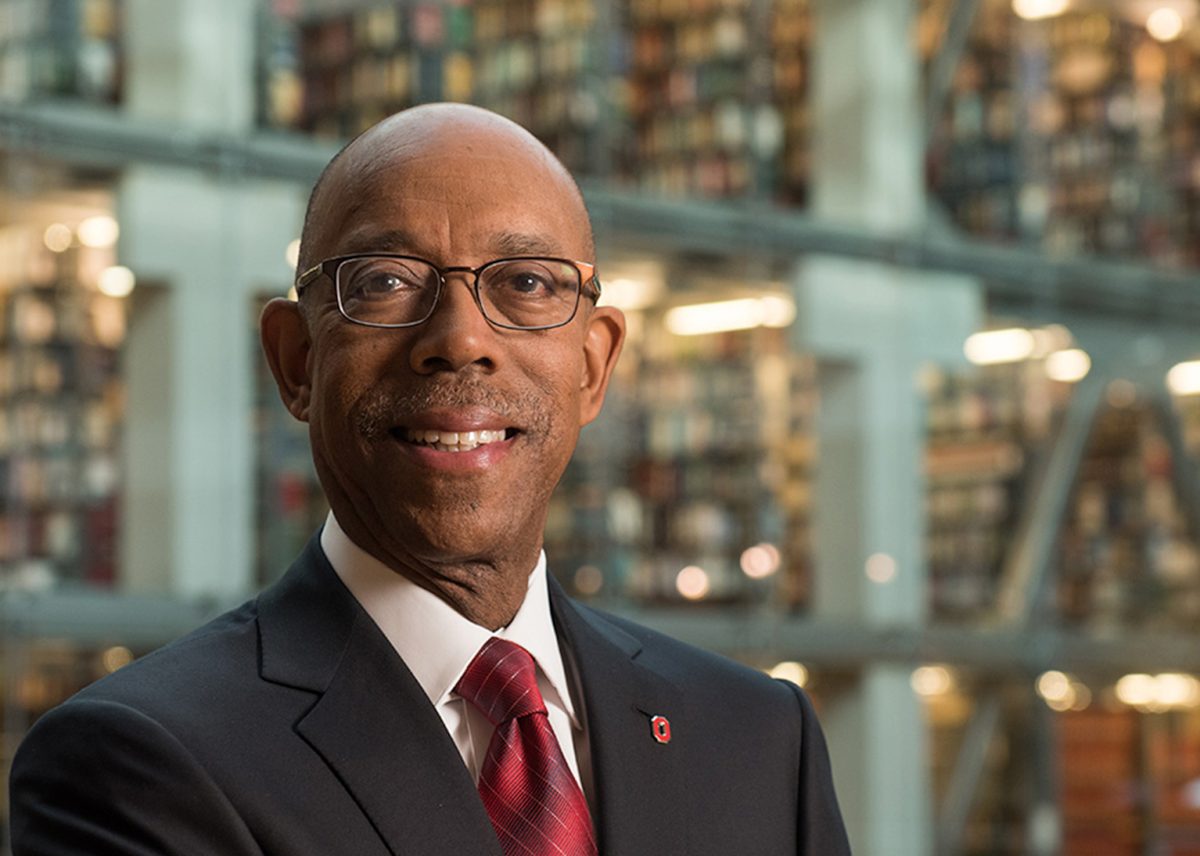President of the University of California Dr. Michael Drake and the Council of UC Staff Assemblies held a virtual town hall on Feb. 19 from 11 a.m. to 12 p.m. on Zoom. This was Drake’s final town hall before he retires on July 31.
CUCSA is a UC staff member-led organization focused on advocating fair policies for UC staff across all campuses and departments. These town halls are typically held to give UC faculty and staff a platform to voice their concerns to the UC Office of the President. All UC staff, faculty, and students are able to pre-register and attend.
CUCSA scheduled the town hall after UC staff sent in questions and concerns in January. Drake and CUCSA focused the town hall on addressing these concerns and on Drake’s retirement.
CUCSA Chair Jen Bowser and DEI program manager at the UCOP and former CUCSA Chair Dennis McIver spoke on behalf of UC staff. They stated concerns surrounding nationwide policy changes from the Trump administration and staff worries over health, housing, and finances.
Following President Donald Trump’s executive orders freezing federal funding for public research, significant UC research is at stake. Bowser asked Drake how the UCOP plans to address these potential issues.
Drake responded that adjustments to federal policy will not impact the success of the UC system. “I will say that our values as a university remain the same,” he said.
Because of this stability, Drake believes that the UC system can withstand policy change, pointing to characteristics like record-breaking undergraduate applications and over 200,000 employees across all campuses and departments.
“The changes in policy that come are things that we need to understand, process and adjust to,” Drake said.
In a Feb. 13 statement published on UCNetwork, Drake shared the UC leadership’s efforts to prevent the potential impacts of NIH budget cuts.
“The University gave its support to a lawsuit filed by the California Attorney General [Rob Bonta] in response to these new guidelines, and I was heartened to see a judge quickly grant a temporary restraining order that prevents the guidelines from being implemented,” the statement read.
Bonta filed this lawsuit against the Trump administration, the NIH, and the Department of Health and Human Services on Feb. 10.
Next, Bowser expressed that UC faculty have grown anxious about their financial and overall stability as employees of the UC system, sentiments that have persisted since the staff originally submitted their questions to CUCSA in January.
“Employees are continuing to be concerned about their financial situations with increased inflation as well as a housing crisis that is affecting many of our campus areas,” Bowser said.
In response, Drake referenced the UC 2025-2026 Budget Plan for Current Operations his office sent to the UC Board of Regents in November. He said that plan intended to address these concerns and preempt their future funding needs.
“We have to see how the budget request comes out at the end of June, until we know exactly, but we are planning on having an increase for policy-covered staff this year,” Drake said. “We had the spike in inflation, but even as the inflation was coming down, we kept increasing the policy-covered staff above that so we could try to make sure to do our best to catch up.”
The policy-covered staff in this memo refers to all UC staff employees and academic appointees who are not represented by a union.
Addressing staff health worries, Drake referenced the UC system’s plan for staff wellness, which includes the further incorporation of UC Health system programs dedicated to supporting staff health.
“Our UC Health system worked a lot on doing an even better job of monitoring diabetes and hypertension, for instance, and being able to help our staff members to monitor themselves in ways that improve the quality of their health,” he said. “I would love to have us continue to expand those things, and the healthier the population, the better.”
After discussing the staff concerns, the town hall conversation moved to Drake, who will be retiring from his position after the 2024-25 Academic Year. Drake became the UC system’s 21st president in August 2020. During his five-year tenure, the UC system saw record-breaking enrollment, with the number of students from underrepresented groups increasing to 45.4% of the total student population in 2024.
Referencing their website, the UCOP sent The UCSD Guardian information delineating the process of transitioning and appointing a new president.
To appoint a new president, the UC Board of Regents chair must appoint up to six regent members to a special committee tasked with finding a candidate. To ensure a pool of candidates from diverse backgrounds, the search is confidential. For the selection of the 22nd UC president, the regent members in the special committee are:
- Carmen Chu – Committee chair
- Gareth Elliott – Committee vice chair
- Maria Anguiano
- Ana Matosantos
- John A. Perez
- Mark Robinson
The special committee also consults with representatives from all UC campuses and academic advisory committees. The various advisory committees consist of 10 UC chancellors, UCOP vice presidents, staff and student representatives from all campuses, and three laboratory directors. There is currently no public timeline for when the next president will be appointed and announced.
Drake recalled some memorable experiences throughout his tenure.
“Among the things that I’ve enjoyed the most [is] I had a chance to go visit all the campuses and meet people,” he said. “I will say, I particularly love meeting students when I go to the campuses.”










